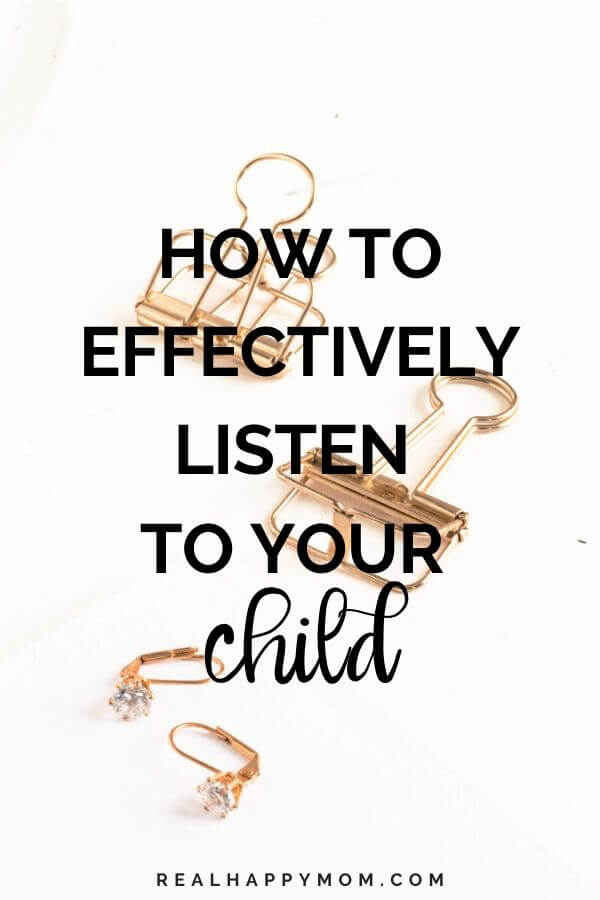If you want your children to listen to you, it’s important to listen to them.
If you’re looking for additional motivation, a recent study found that having at least one caring parent was the most important factor in helping kids to build resilience and succeed in school.
Children were six times more likely to overcome challenges and complete their homework if they had a parent who listened to them, according to a study published in the journal Pediatrics.
While parents had the greatest influence, other research shows that the presence of any caring adult can increase positive outcomes too.
If you want to help your kids or children in general, work on your listening skills.
Try these tips for how to effectively listen to your child.
Tips for Preparing to Talk with Your Child
You may have to lay some groundwork if you want your child to talk with you more.
Create an environment that encourages heartfelt talks. This is the first step for how to effectively listen to your child.
Spend time together.
Your child will be more likely to come to you with sensitive issues if you nurture a close connection.
Block out time each day for family meals and sharing fun activities.
Do household chores together and read stories before bedtime.
Tune out distractions.
Give your child your full attention when they need to talk.
This means you may need to put away your phone and stop thinking about the office and mortgage payments.

Work on timing.
Successful conversations sometimes depend on the setting.
Let your child know that you’ll be available later if they need time to compose themselves or think a situation through.
Calm down.
Similarly, you may need to cool off. It’s easy to say things in anger that you’ll regret later.
Taking a walk around the block could prevent you from making a harsh comment that could stick with your child for years.
Think positive.
Let your child know that you notice the things they do well in addition to the times they mess up.
Talk more about making friends and learning and less about grades and unmade beds.

Tips for How to Effectively Listen to Your Child
Anyone can strengthen their attentive listening skills. Those same skills are likely to help you with other relationships too.
Use these strategies to shore up your listening skills.
Focus on interaction.
Dialogue moves in two directions. Ensure that you listen at least as much as you speak.
Let go of judgments.
Show your child that you love and accept them just as they are.
You can validate their experiences even when you disagree with their choices.

Drop your agenda.
Encourage your child to develop their own perspective and solve their own dilemmas.
Resist the urge to do the work for them.
Address underlying issues.
There’s often more to a conversation than what appears on the surface.
If you think your child is overreacting or developing unhealthy patterns, you may need to dig deeper or consider family counseling.
Watch your body language.
A great deal of communication is non-verbal.
Use your facial expressions and gestures to show your child that you’re interested and supportive.
Make eye contact and keep your body relaxed and open.

Discuss feelings.
Even adults often struggle to identify and share their feelings.
The more you work on your own emotional intelligence, the more you can be a role model for understanding and expressing feelings.
Keep practicing.
You may find that active listening seems unnatural or complicated at first.
However, your abilities will grow over time, and your family life will be enriched just by making the effort.

Help your child to develop healthy self-esteem and communication skills by listening to what they have to say.
They’ll have a brighter future, and you’ll both enjoy a closer relationship when you learn how to effectively listen to your child.


[…] How to Effectively Listen to Your Child […]